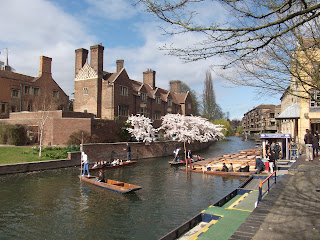The following has been posted in the online edition of The Occupied Times of London. It was written collectively by myself and some other members of the Greater London Chapter of the interim International Organisation for a Participatory Society.
How does one approach the creation of a new world in the face of such
confusion, cynicism, ignorance and alienation? The left has failed at
offering an effective, unified resistance to rampant neo-liberal
capitalism. Weak from the many assaults from the establishment and the
constant propaganda of the corporate media, the progressive/radical
movements and organisations plod along fatigued from incessant external
and internal conflict. The divided strands of radical individuals and
groups don’t stand a chance against the clinical structure of the elite
with all the apparatus of the state at their disposal. The Occupy
movement has gone some way to refresh the left and offer new hope…the
Thatcherite mantra There is No Alternative has never sounded so
hollow in the face of people coming together with a common purpose to
show how a different, more sane way of living can emerge from the most
difficult of circumstances. In this respect, the Occupy movement has
much in common with (and yet can learn a lot from) much of the destitute
of the world who struggle as whole communities as a means of survival.
In our materialistic Western society, we often forget or underestimate
the value of mutual aid, respect and spiritual health. Our egos are
trained to take over our minds and put the selfish, superficial needs of
the individual above all else. Even those of us who keep our egos in
check and battle the predatory values of capitalism, be it the
conscientious political activist, caring social worker or the wise old
neighbour next door, fall victim to self-indulgence occasionally.
How then do we overcome our own conditioning and move from an
oppositional force on the margins of public discourse to a wider
movement with majority support and participation? At the beginning of
2012, leading activists from all over the world (including Noam Chomsky,
John Pilger, David Graeber and others) came together to attempt to
answer this question and formed the interim committee of the
International Organisation for a Participatory Society (IOPS). The core
values of this new, ambitious organisation were agreed to be:
Self-Management, Equity/Justice, Solidarity, Diversity, Ecological
Stewardship and Internationalism. These values would determine the
vision of the organisation which would treat the Political, Economical,
Kinship and Community/Culture spheres as being of equal importance to
one another as part of a philosophy of complementary holism. In other
words, all aspects of life should be considered in offering a vision for
participatory societies, forming a network spanning the local, national
and international. Self-determination for all peoples, whether in
Shrewsbury or Shanghai, Lagos or Los Angeles wouldn’t contradict
cooperation between the local and global. A bottom-up structure would
facilitate this network of individuals and communities, groups and
projects, to form a truly participatory world where every person could
reach their full potential.
Needless to say, such an idea seems utopian to many but this is what
means to think of a better world. We set the parameters; we decide our
future, unhindered by what is promoted as realistic or acceptable by
elites and their cronies. In April, the interim website of IOPS was
launched to help fulfill this vision. Partially inspired by Occupy and
the decision-making processes of its assemblies, IOPS aims to encourage
people to deliberate online and face-to-face. Local, Regional and
National Chapters in a framework of nested councils would link whole
countries and continents showing how they can function horizontally,
where real power is held by the people in a truly democratic way. We
hope that in this initial stage, IOPS can help provide a platform for
the Occupy movement, improving organisation and advocating the worldwide
expansion of the activities and core values at its heart.
Obviously there are many challenges to such a radical, international
organisation. It is our hope that existingcampaigns on many fronts can
use IOPS to broaden and sustain their activism beyond
local/one-off/single-issue campaigns. Being at the interim stage of the
organisation and having most of the members on the interim committee
from either the United States or Europe, it has a long way to go to be
truly international in the sense of having the participation of members
in Asia, Africa and Latin America. The website has been translated into 9
other languages so far and is continuing to look for volunteers to
translate yet more. The name and logo or the site is also interim….this
is all open for democratic discussion and will be open to a popular vote
once there is sufficient participation internationally. There is also
the issue of excluding the illiterate and those without regular access
to the internet but this problem can be overcome at a later time if the
organisation grows in such numbers internationally that it reaches
critical mass and ensures its core values are effectively promoted to
all. Once we effectively organise, the main obstacles are the
governments, corporations and financial institutions. Their power is
illegitimate – more and more people are become conscious of this and
crying out for something that realises all their hopes. Once this
becomes global, the old order would crumble under the weight of popular
resistance and solidarity. Our main challenge is convincing ourselves
that we are capable of winning a better world. If we do that and
organise relentlessly to achieve our goals, all this may eventually
become more than an impossible dream.



























